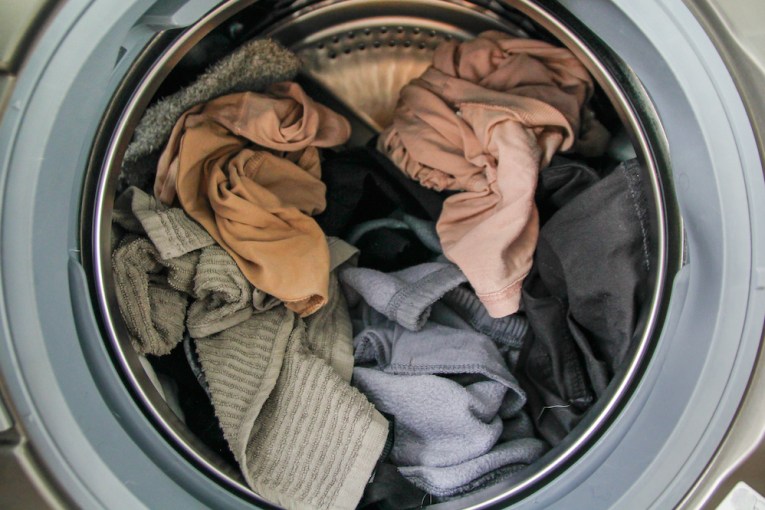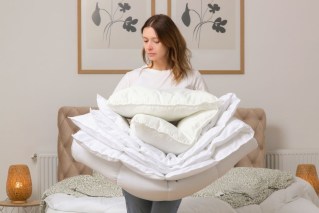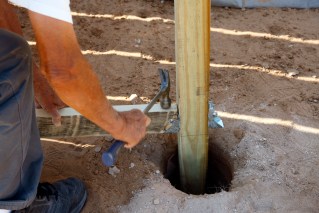How your home can help reduce fatigue


Some small changes could drastically improve your energy levels. Photo: Getty
It’s a common malaise – if we’re not complaining of being tired, our friends are telling us how tired they are.
While there may be medical issues involved, it could also be that your lifestyle is making you tired.
Not enough sleep, too little exercise, poor eating habits, too much work, too many commitments; if this sounds familiar, the good news is that your home can help you overhaul your lifestyle. Here’s how.
1. Rest zones
As obvious as it sounds, our culture doesn’t exactly lend itself to catnapping in the middle of the day. Despite all the research proving that having an afternoon shut-eye is good for you, it’s still not acceptable to climb under your desk after lunch and have a bit of nap – unless you work for yourself or you’re lucky enough to have a very progressive employer.
But that’s a shame because the benefits of catnaps are many. Humans are uncommon among animals in the way we tend to go for a sleep in one big chunk. There’s more research showing that a quick afternoon nap at the right time can really help us recharge the batteries.
Winston Churchill is said to have first coined the term ‘power nap’ and he claimed the clarity it brought was necessary for wartime victory. “You must sleep sometime between lunch and dinner, and no halfway measures…” said the great British Prime Minister. “Don’t think you will be doing less work because you sleep during the day. That’s a foolish notion held by people who have no imaginations.”
Of course there’s a knack to daytime sleeping and it helps if it’s kept short – at least 10 minutes, but not too long either. More than 90 minutes could leave you feeling groggy. Professor Leon Lack from Flinders University in South Australia conducted a study into daytime napping. He says it’s the length of sleep that is crucial to our post-nap performance.
“Ten to 15 minutes of sleep seems to be the optimum period in terms of improving mental operations, performance, reaction times and subjective feelings of alertness,” he says.
“And that improvement in performance and alertness seems to be maintained for up to two and sometimes three hours after the nap. Interestingly, the five-minute nap just didn’t produce the same amount of improvement, while longer naps of 25 to 30 minutes led to subjects being somewhat drowsy and less alert for up to an hour after the nap.”
The timing of the nap is important – Professor Lack suggests six to eight hours after normal wake-up time, so if you get up at 7am your optimum nap-time is between 1pm and 3pm.
If taking yourself off for a nap in bed is inconvenient or if you think you’ll oversleep, create beautiful places around the home that are conducive to daytime napping – north-facing, sun-drenched window recesses complete with cushions or throws, for example.
2. Tech bans
We’ve all heard this one before, but it makes sense that if we’re staring at a screen before bed our mind becomes over-stimulated. Evidence shows that it’s not just kids who should lose the tech at least a couple of hours before bed.
According to research from the Sleep Health Foundation, studies on the effects of bright tablets show that using laptop screens for up to five hours before bed affects the evening’s natural rise in melatonin (a hormone that makes us ready for sleep).
Repeated use of a bright screen over five days can delay the body clock by one and a half hours, meaning that you consistently want to go to bed later and sleep in longer. This can obviously be a problem when you need to get up for school or work.
The study found that:
- The bright screen light from devices can cause increased alertness.
- Activities on such devices can be stimulating and make us less ready to sleep.
- People can become absorbed and continue using technology beyond their usual bedtime.
3. Creative colours
Set the appropriate mood for the relevant areas of your home – if you intend to sleep or relax somewhere, use relaxing colour schemes with natural or soft palettes, use soft lighting and induce sleep and relaxation with gorgeous rugs and throws.
Wake yourself up in other parts of the house with lively colour schemes, or if strong colours aren’t to your taste try stark contrasts of black and white.
4. Space for fun
As we run around with our serious pursuits of shopping, working, and staying connected to the 24-hour news cycle, are we sometimes forgetting to have fun? Of course we don’t need to have a climbing wall on the side of the house to do this, but are there other pursuits you love that would inject some energy into your life – playing a board game, dancing, singing or just hanging with your kids in the garden playing backyard cricket?
Spending time in the outdoors and getting some vitamin D helps to invigorate us, so try taking advantage of any outdoor areas you have, even if they are limited, by making them as enticing as possible, luring you into the fresh air.
5. Grounds for exercise
We all know that feeling – we really can’t be bothered to get off the sofa and exercise. Yet when we do, we feel so much better for it. Even if you don’t have a gorgeous pool like this one, ensure you’re getting enough exercise in or outside of the home, to boost your energy levels.
6. Home-based hobbies
It might sound counter-intuitive – get more energy by doing more. Aren’t we just making ourselves more busy? But finding an activity – whether it can be done at home or requires going out – that we enjoy and that can totally absorb our minds will ultimately wake us up.
Is there something you’ve always wanted to do, such as painting, gardening or sewing, that you can set up a space for at home? Or is there something that you want to get involved in outside the home, such as pottery classes, starting a book club or learning Spanish? If it’s social, it might be even more beneficial. Whatever it is, learning a new skill can reinvigorate us.
7. Meditation space
The reported benefits of meditation are quite similar to those of the power nap. A regular meditation practice is said to lower the heart rate, improve memory, increase cognitive function, and of course, give us more energy.
8. Outsourced chores
If you live in a large home and there’s lots of housework to do, but you’re working all day, could you consider outsourcing some of the work to offload your commitments? Whether it be a gardener, a cleaner or a handy person, identify the areas where you need help or where someone could do it better than you and outsource that area.
9. Encouraging kids to help
If the budget doesn’t run to outside help but you have little ones at home, start training them to help around the house. Start with their own bedrooms; get them picking up after themselves and tidying their rooms. As they get older, get them on to helping around other areas of the home – cleaning bathrooms, cooking meals, tidying up shared areas. They get experience that will benefit them for life, you get help around the house and, though it might be hard work at first (maybe offer to up their pocket money to motivate them), it will soon pay off.
10. Proper meal planning
If you think that eating badly, or too much or too little, is making you tired, take stock of what you eat – avoid takeaway, take the time to make meals at home, and make time to eat dinner at the table rather in front of the television or a computer. Allow a couple of hours before bed without eating so that you’ll sleep better.
11. Comfy cosy home
Are you working and playing too hard, with simply too many commitments? What about having a night at home instead of going out all the time? Focus on making your home your sanctuary and you’ll want to spend more time there.
By Liz Durnan
– Soothe your soul with these 10 indoor plants











